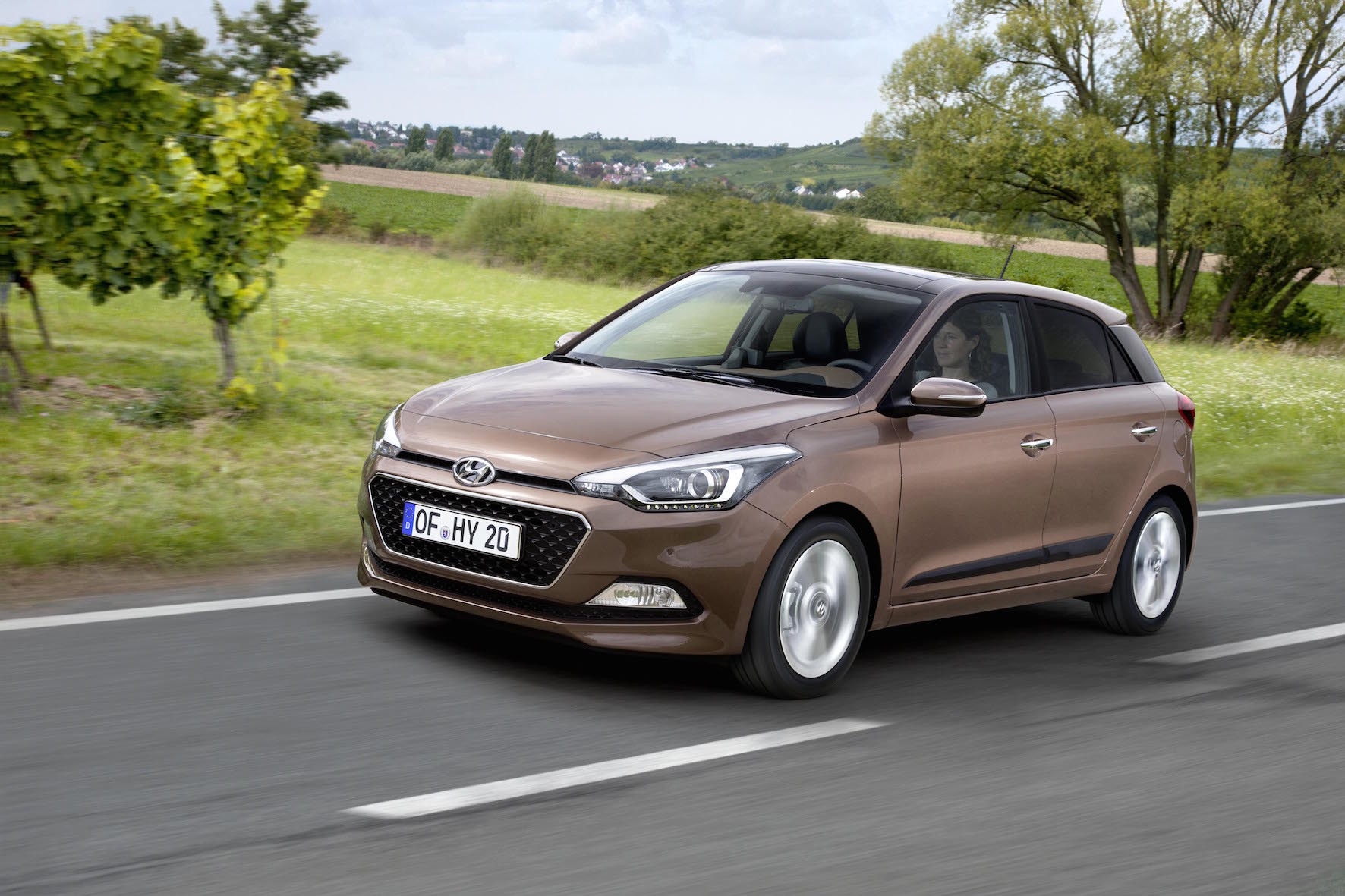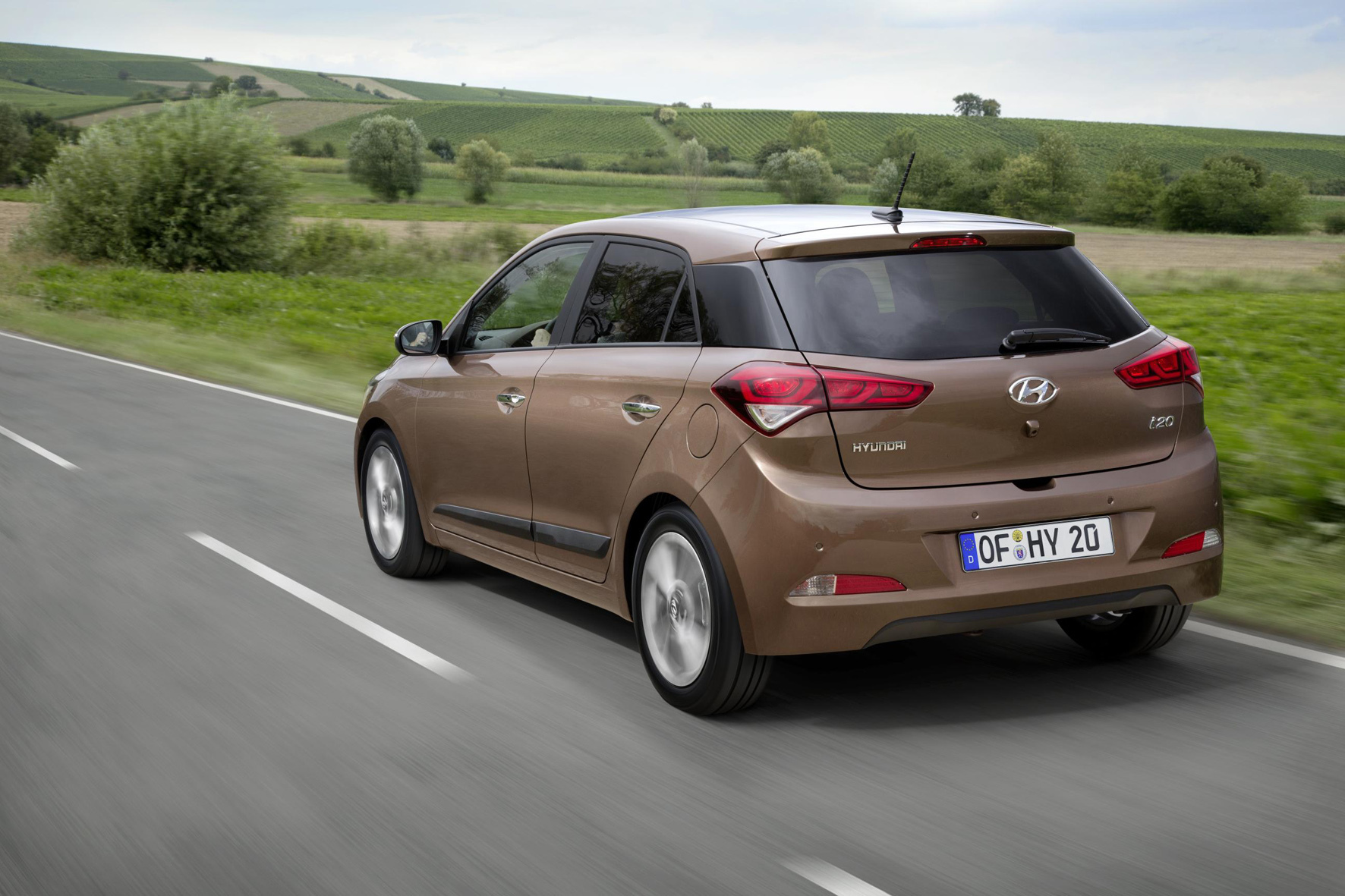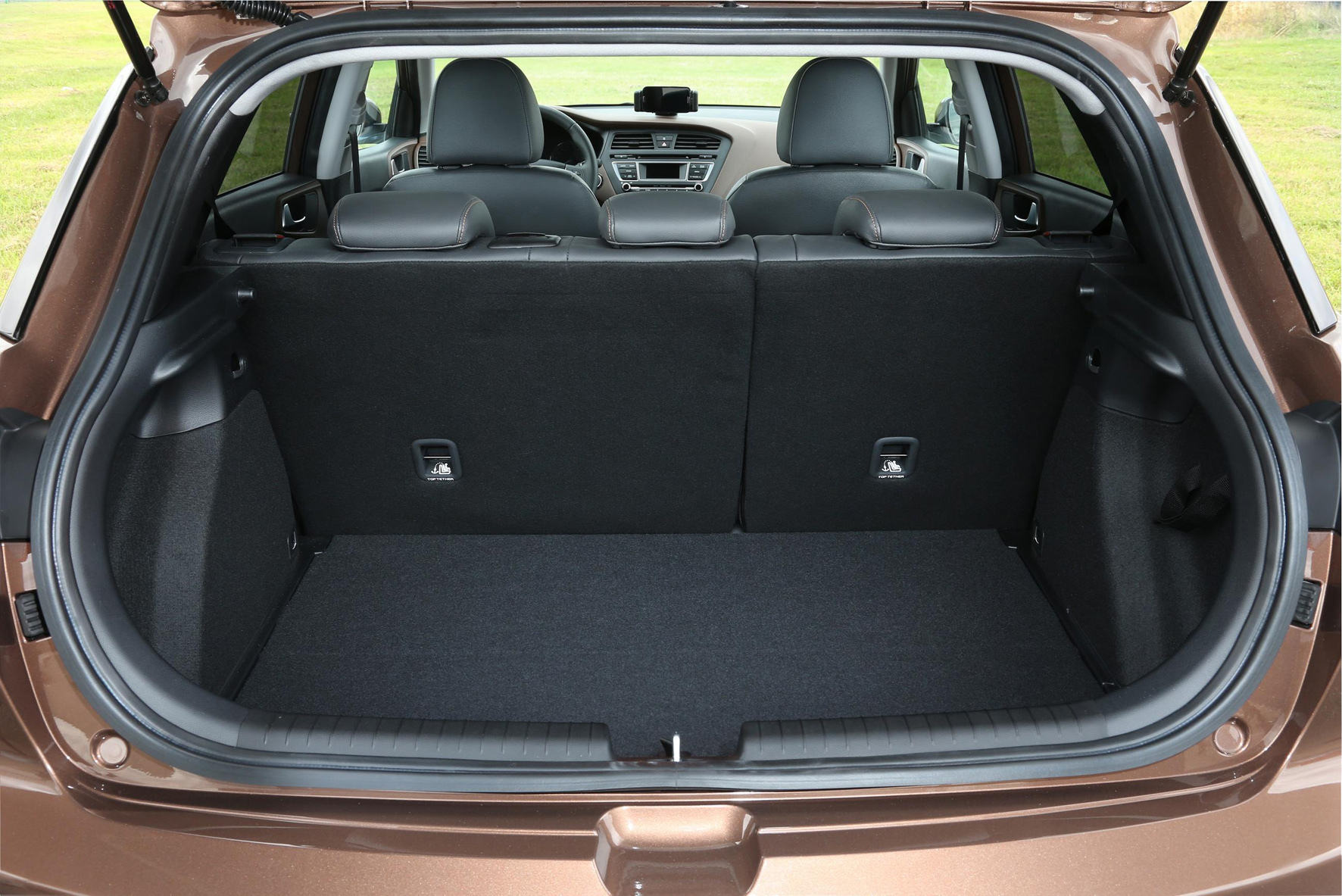The small car class is full of star performers but the i20 might just have aced its latest exams.
Hyundai has hit the big time with its latest small cars. The i10 is a cracker, and the all-new i20 is every bit as good. Everything is better than before, from the suspension to the seats, and from the high-tensile steel body to the innovative sat-nav integration solution.
The Korean firm has worked on a premium feel, and it goes way beyond a few soft-touch surfaces on the dashboard. Quality engineering seeps from the i20’s every panel, and it shines through in a genuinely superb package.
It’s a striking thing, thanks to second-generation ‘Fluidic Sculpture’ design and neat, balanced proportions. Choose the smaller 15in wheels and you might regret it, though. Until recently Hyundai’s image has centred on reliability and quality, backing it up with a five-year warranty, thus appealing to older buyers. The hawkish looks of the new i20 are designed to broaden that appeal to younger buyers, and it works. This is a genuinely desirable car.
A 301-litre boot brings up the rear, and it’s evenly shaped to give maximum chance of fitting different sizes of bags in. What’s most impressive is how much passenger room there is. Four real-life British adults will fit in with absolutely no complaints – and they’ll all be comfortable, too.
Under the bonnet, all the engines are good, but arguably the 1.2-litre petrol is the sweetest. It revs keenly, responds quickly and is exceptionally quiet most of the time. In town it’s a gem, and while the 1.4 is pokier, it’s more expensive.
Thanks to quality damping, the i20 feels marvellously mature and stable, whether it’s tasked with a motorway or a series of tight bends. The steering on petrol models is surprisingly good, with a lovely, direct feel that weights up quickly but consistently. It’s unexpectedly good to drive even if you drive it like you stole it. Words of caution: avoid the ancient four-speed automatic gearbox. Noah had one before he built the Ark, and he didn’t like it very much either. Not to mention the awful things it does to the fuel consumption and road tax liability. Exterior wind blast and air pressure changes can also have the effect of creating what sounds like wind noise at higher speeds, but is actually swirling air in the pipes. Turn the fan off and it disappears.
There’s a fair price jump from the loss-leading entry-level model to those that you’d actually buy. SE trim has most of the bases covered, but lots of extra comfort and luxury tech makes Premium worth the stretch. Pair it with the 1.2 petrol engine and you’re onto a winner.
Hyundai is still a little behind the times on engine tech, but it’s set to bring out a turbocharged 1.0-litre petrol in the i20 next year. At the moment only the special eco-diesel falls below the 100g/km CO2 free road tax threshold, but the new engine will join it – for a price.
This is a perfect all-rounder for people who want style, maturity and space without the price tag. There’s so much to like that only getting hands-on with it will do it justice, and when buyers can have something that looks this good, feels so well built and drives as well as it does, there’s precious little reason to look elsewhere.
Facts & figures
Model: Hyundai i20 1.2 Premium
Price: From £13,725
Engine: 1.2-litre petrol unit producing 83bhp and 90lb/ft of torque
Performance: Top speed 105mph, 0-62mph in 13.1 seconds
Economy: 55.4mpg combined
CO2 rating: 119g/km


